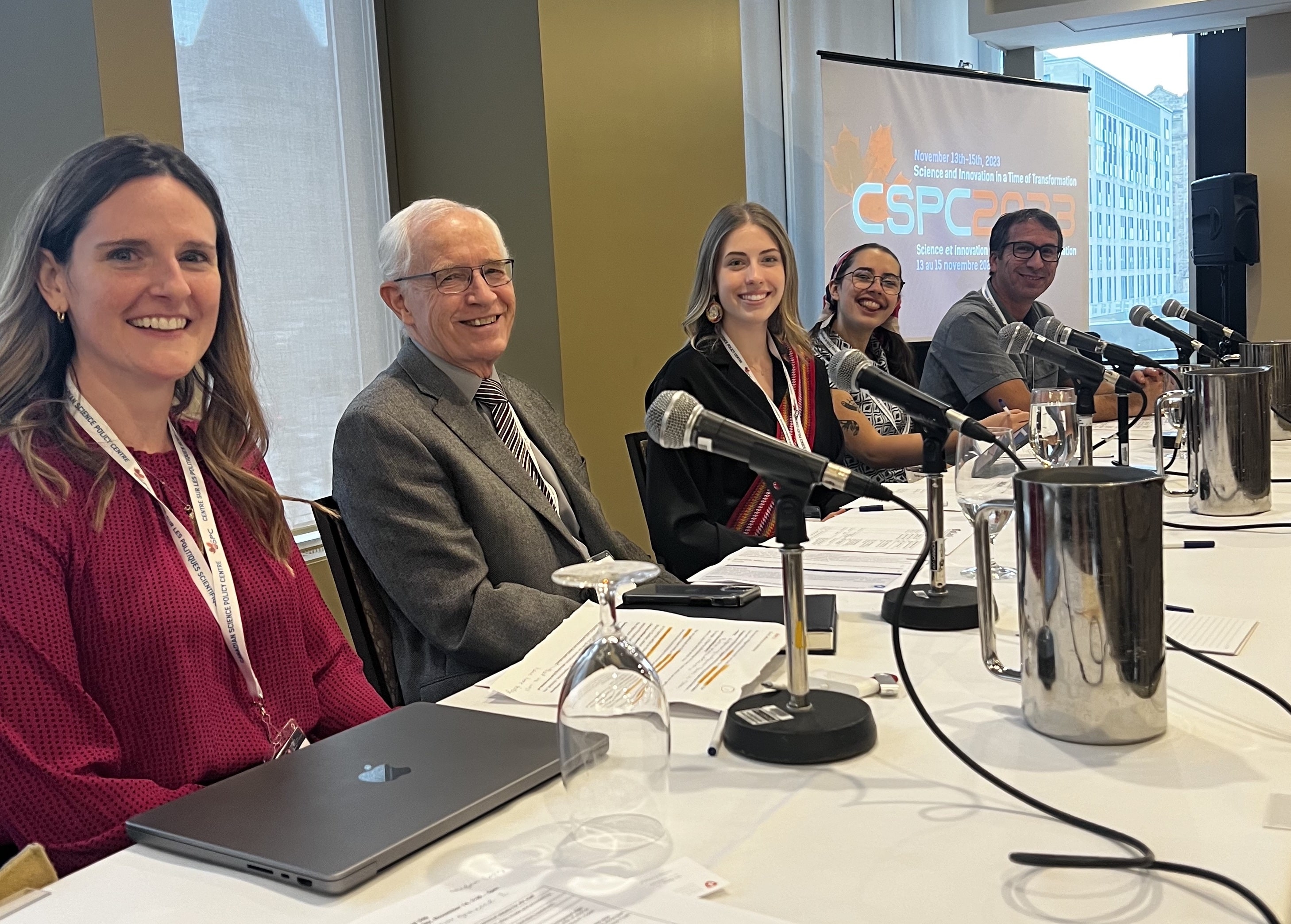By Alexandria McRorie
Member of the Métis Nation of Alberta, Region 3
Bachelor of Science Undergrad Student at the University of Calgary
2023 BioCanRx Summer Student
In November 2023, the Canadian Science Policy Conference (CSPC) featured a compelling panel discussion titled “Empowering Indigenous Youth in STEM: Best Engagement Practices.” This session was a convergence of diverse perspectives, bringing together national organization representatives, educators, students, and other stakeholders to share experiences and insights aimed at enhancing Indigenous youth participation in STEM.
The session, moderated by Dr. Megan Mahoney, BioCanRx’s Director, Scientific Affairs and Training Programs, opened with an acknowledgment of the historical and ongoing challenges faced by Indigenous youth in accessing STEM education. Speakers underscored the importance of dismantling barriers and creating pathways for these young minds to thrive in scientific fields. Central to the discussion were the themes of mentorship, representation, and culturally sensitive learning environments.
Sarah Ivanco, Manager of Equity, Diversity, and Inclusion at BioCanRx, spoke from an organizational standpoint, advocating for initiatives that reach out to Indigenous students. Sarah articulated strategies that transcend conventional outreach, advocating for programs that are shaped by direct dialogue with Indigenous communities.
Danilo Caron, a PhD student in Civil Engineering and Indigenous Student Engagement Coordinator, offered a dual-lens perspective as both a graduate student and an advocate for Indigenous students. Danilo’s contributions as a coordinator highlighted the transformative power of programs that support Indigenous students from recruitment through to graduation, ensuring that mentorship is not a mere checkpoint but a sustained dialogue.
As an undergraduate STEM student, I shared perspectives rooted in my Indigenous experience, emphasizing the importance of establishing genuine and meaningful relationships with local Indigenous communities built on the principles of trust, respect, and reciprocity. I advocated for mentorship that celebrates cultural identity, ensuring that young Indigenous students, like me, feel a sense of belonging in their academic pursuits.
From an institutional viewpoint, Dr. Mark Whitmore, former Dean of Science of the University of Manitoba, and board member of the Verna J. Kirkness Foundation, stressed the transformative potential of sustained institutional commitment. His experience as an academic leader provided a blueprint for higher education’s role in cultivating environments that not only welcome but actively support Indigenous scholars.
Central to the discourse was the assertion that mentorship for Indigenous STEM students must transcend the conventional. Panellists concurred that fostering Indigenous youth in STEM necessitates the creation of enduring, trust-based relationships spanning the entire educational journey—from early education to post-secondary education and professional development. This approach encourages a continuity of support that aligns with the cultural and community values of Indigenous students.
The panellists shared a unified vision: the engagement of Indigenous youth in STEM is most effective when it is a collaborative, multidimensional effort. It calls for involvement from academic institutions, industry, and Indigenous communities to ensure that the educational journey is not only enriching but also empowering. The conversation also highlighted the importance of dismantling systemic barriers and nurturing inclusive academic and professional landscapes.
With a call to action, the panellists implored all stakeholders in the STEM community to forge ahead with initiatives that are both innovative and inclusive, ensuring that the path forward for Indigenous youth is not only accessible but paved with opportunities for leadership and growth. As panellist Danilo Caron aptly put it, “Empowering Indigenous youth in STEM is not just about creating opportunities; it’s about nurturing a future where diversity and innovation go hand in hand.”
In conclusion, the panel made it clear that empowering Indigenous youth in STEM fields is an endeavour that requires comprehensive, culturally attuned, and collaborative strategies. The insights shared are a beacon that guides the way toward a more inclusive and innovative STEM landscape, promising a brighter future for both Indigenous communities and the scientific community at large.
